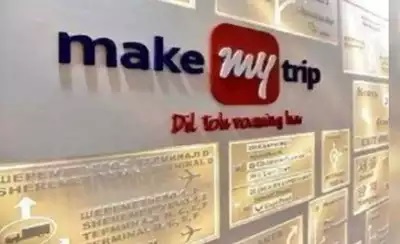MakeMyTrip vs Booking.com – Looking at the Delhi High Court Injunction on Usage of AdWords

In an order dated 27th April 2022, Justice Pratibha M. Singh awarded an interim injunction in favor of Makemytrip (within the territory of India) in the matter of Makemytrip India Private Limited vs Booking.com B. V. & Ors. respondents were limited from utilizing the offended party’s enlisted blemishes on the Google Ads Program as catchphrases since this would add up to reserve encroachment and comprise passing-off.
Relevant Background and Parties Submission
The plaintiff brought the complaint to defend its different registered trademarks that Defendant No.1- Booking.com B.V exploited as keywords on the Google Ads Program to promote its services as adverts when Google search results are presented. The plaintiff argues that because Booking.com utilised Makemytrip’s trademarks as keywords, the first advertising displayed in Google when searching for ‘MakeMyTrip’ is that of Booking.com. As a result, the defendants’ use of the plaintiff’s registered brand constitutes infringement.
Respondent No. 1 is an online travel portal, comparable to the plaintiff. The respondent relied on the European Commission case (“Guess decision”) to argue that there can be no restrictions on rivals’ use of a trademark as a term in the Google Ads Program. It argued that limiting the use of ‘MakeMyTrip’ as a keyword would be illegal under competition law. It was also argued that generic phrases like make,” my,’ and ‘journey’ are acceptable under Sections 34 and 35 of the Act. In a similar vein, the other defendant (Google) maintained that using the trademark as a term does not constitute trademark infringement, which is a widely acknowledged viewpoint.
Analysis of the Judgment
Infringement under Section 2(2) (b) and Section 29 of the Act
The Court observed that the Google Ads program allows any entity to bid for keywords that might include anybody’s trademark. The competitors bid against each other for the marks belonging to each other for better visibility of their goods and services on the search engine. The Court also opined that this, as a result, forces a trademark proprietor to bid for its own trademark, or else its competitors could use the registered trademark for advertising their own goods and services. Thus, compelling the owner to make investments in the Google Ads Program.
Based on the reasoning above, the Court stated that Google is encashing the trademark owner’s goodwill by allowing the competitor to book the said mark as a keyword. The Court relied on DRS Logistics (P) Ltd & Ors. V. Google India Pvt. Ltd. (“DRS Logistics”) expansive interpretation of Section 2(2)(b) (‘use’ requires visual representation) read with Section 29(9) (spoken use of word marks can also be infringement), to opine that invisible marks can constitute use, and therefore infringement. The Court also held that defendant no. 1 is using the plaintiff’s mark for the purpose of advertising, therefore Section 29(6) (d) and 29(7) are violated. Also, it relied on People Interactive (I) Pvt. Ltd. v. Gaurav Jerry ((Jerry case) (analysis here)) to state that the invisible use of registered trademarks by non-proprietors dilutes the mark and it is on the same pedestal as online piracy.
Passing-Off Claim
As there is no evident use, the Court rejected the customary notion that there is no passing off in the use of a mark as a term. It relied on Kerly’s Law of Trade Marks and Trade Names (15th Ed., p.628 & 629) to reach the conclusion that the “invisible” use of a mark as a keyword can amount to passing off. The author specifically emphasizes that if ‘nobody is misled or likely to be misled, there can be no passing off.’ As a result, misrepresentation alone cannot constitute passing off. To be considered passing-off, the misrepresentation must result in deceit. This adds to the case for why a data-driven approach to drawing conclusions in this domain would be advantageous.
The Court stated that, while the “invisible” use of a mark as a keyword might constitute passing off as a general rule, the proprietor of the mark has complete freedom to book its own trademark for the purpose of advertising. This addition of invisible usage within the scope of passing off becomes important in light of technical improvements in the present digital environment and the rise of instances involving the use of keywords and meta-tags.
Conclusion
Similar cases have been filed by the plaintiffs in which the various defendants were barred from bidding for any ‘keywords’ on the Google Ads Program that are identical or deceptive variants of the Plaintiff’s mark ‘MakeMyTrip,’ because the defendants’ actions constituted trademark infringement and passing off. This ruling comes at an opportune moment since instances involving the use of trademarks on Google Ad Programs are on the rise. However, further clarification on some of the arguments described above and more use of statistics would have made this ruling a stronger precedent for challenges involving comparable circumstances.